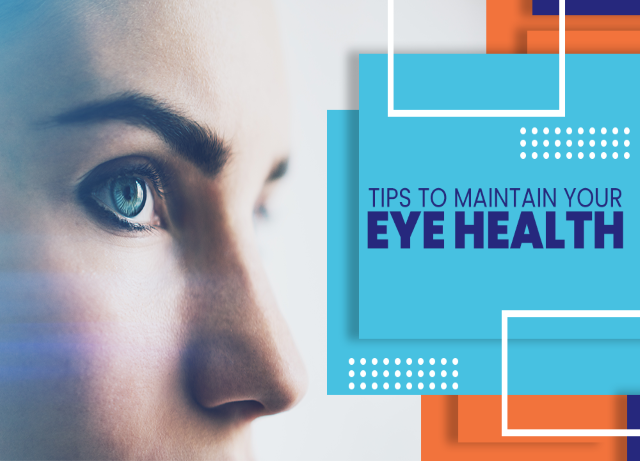Your eye health is important and shouldn’t be taken for granted. If you have eye problems, it can affect your quality of life and overall health. But you can take certain steps in addition to visiting your doctor London for regular exams to ensure your eyes are healthy and fully functional.

These steps will help keep your eyes healthy.
Eat well
Keeping your eyes healthy starts with the food you eat. Nutrients such as lutein, vitamins C and E, zinc and omega-3-fatty acids can help prevent age-related vision issues like macular degeneration and cataracts.
You can get these vital nutrients from:
- Pork and oysters
- Tuna, salmon and other oily fishes
- Green leafy vegetables like collards, kale, and spinach
- Oranges and other citrus fruits
- Beans, eggs, nuts and other protein sources besides meat
Quit smoking
Smoking increases your risk of developing cataracts, causes macular degeneration and damages the optic nerve. If you want to quit smoking, consult your doctor for help. Even if you have tried to stop smoking and failed, ensure you keep trying until you completely quit smoking.
Wear sunglasses
Wearing the right pair of sunglasses can protect your eyes from the effect of the sun’s UV rays. Excess exposure to UV rays increases the risk of macular degeneration and cataracts. Opt for sunglasses that block 99 – 100% of UVA and UVB rays.
Glasses with wraparound lenses are better because they protect your eyes from the sides. Wearing polarised glasses will also reduce glare while driving, but they do not offer protection. For people wearing contact lenses, even those offering UV protection, wearing sunglasses for an extra layer of protection is necessary.
Use safety eyewear
If you work with airborne or hazardous materials, ensure you wear protective goggles or safety glasses. Sports such as racquetball, hockey, lacrosse and ice hockey can cause eye injury, so always opt for protective eyewear when engaging in these sports.
You can wear sports goggles with polycarbonate lenses or a helmet with a protective face mask to protect your eyes.
Look away from your computer screen
Looking at your phone or computer screen for long periods can cause the following.
- Headaches
- Dry eyes
- Blurry vision
- Eye strain
- Trouble focusing on distant images
- Shoulder, back and neck pain
You can protect your eyes with the following tips from an expert doctor Harley Street.
- Ensure your contacts or glasses prescription is up to date and good for working with a computer
- If you experience persistent eye strain, consult your doctor about getting computer glasses
- Move your computer screen to allow your eyes to be at the same level as the top of your monitor. This allows you to look down slightly to see the screen
- Opt for an anti-glare screen and try avoiding glare from lights and windows
- If you experience eye dryness, opt for artificial tears or blink more
- Get a comfortable, supportive chair and position it to allow your feet to remain flat on the floor
- Rest your eyes after 20 minutes and look 20 feet away from your screen for 20 seconds. Take at least a 15-minutes break after every two hours
Visit the eye doctor regularly
An eye exam is necessary even for everyone, including children. Regular eye exams help protect your eyes and optimise vision. During an eye exam, the private doctor UK can identify diseases such as glaucoma with no symptoms.
Identifying these diseases early is necessary because treatment is easier during this stage.
You can see any of the following eye doctors depending on your eye health.
- Ophthalmologist
An ophthalmologist is an eye doctor specialising in eye care. The ophthalmologist also treats eye diseases, performs eye surgery and provides general eye care.
- Optometrist
An optometrist receives four years of specialised training after college. The optometrist provides general eye care and diagnoses and treats most eye diseases but does not perform eye surgery.
Your comprehensive eye exam should include the following:
- Discussing with the doctor about your family and personal medical history
- Tests to determine how well your eyes function together
- Vision test to check for myopia, hyperopia, presbyopia (vision changes resulting from ageing) and astigmatism (a curved cornea causing blurry vision).
- Microscopic and external eye examination before and after dilation
- Optic nerve and eye pressure test to determine if you have glaucoma
If you have eye problems or need expert advice to maintain your eye health, visit Private Doctor London or call 020 7183 2792 for an online appointment of private doctors in London, UK.